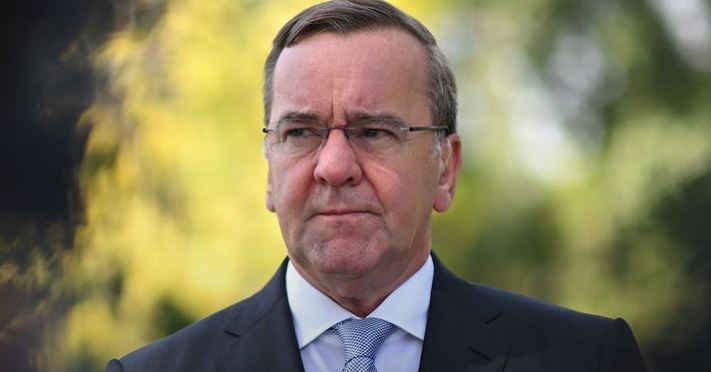A nearly one billion euro gap has emerged between German Defense Minister Boris Pistorius’s public promises of Ukraine military aid and the actual budget allocations approved by Chancellor Friedrich Merz’s cabinet, according to Bild.
The discrepancy has raised questions about whether the minister miscalculated or misrepresented Germany’s commitment to Ukrainian defense.
However, Germany recently refused to supply long-range Taurus cruise missiles to Ukraine, citing concerns over escalation and the risk of direct German involvement in the conflict
The controversy centers on a 900 million euro shortfall between promised aid of 9.2 billion euros and the 8.3 billion euros actually allocated in the government’s 2025 budget draft for states attacked in violation of international law, Bild reports.
The dispute began during Pistorius’s 12 June visit to Kyiv, where he met with President Volodymyr Zelenskyy. The Federal Ministry of Defense subsequently announced that Pistorius had promised Ukraine an additional 1.9 billion euros, primarily for long-range missiles. The ministry stated that if approved by parliament, total Ukraine support would reach around 9 billion euros for the year.
Six days later, the Defense Ministry reinforced this message, explaining that Germany would provide 7.3 billion euros in already-approved military aid for 2025, with an additional 1.9 billion euros planned pending parliamentary approval, totaling up to 9.2 billion euros.
However, Bild reports that when the Federal Finance Ministry distributed its 2025 budget draft on 23 June, the document listed only 8.3 billion euros for aid to states attacked in violation of international law, which primarily benefits Ukraine.
Defense ministry denies miscalculation
When questioned by Bild about this discrepancy, the Defense Ministry denied any miscalculation. A ministry spokesperson stated that the government would support Ukraine with around 9 billion euros as promised, noting that Finance Minister Klingbeil and Pistorius had agreed on this figure during budget negotiations.
The spokesperson attempted to reconcile the numbers by claiming that “the 1.9 billion that we will use, among other things, to finance the Long Range Fires, is included in the 8.3 billion euros.” This explanation contradicts the ministry’s previous public communications, which had presented a simple calculation of 7.3 billion plus 1.9 billion equaling 9.2 billion euros.
According to government sources, the Defense Ministry had consistently registered only 8.3 billion euros for Ukraine aid during budget negotiations, not the 9.2 billion figure communicated publicly.
To bridge this gap, the Defense Ministry referenced “co-funding revenues and fund returns from the EPF (European Peace Facility)” that would theoretically bring the total to around 9 billion euros through these additional funding mechanisms.
This means the ministry hopes to secure an additional 900 million euros outside the federal budget, with the alternative being either additional tax funding or reduced aid to Ukraine.
Ukraine needs concrete support
Green Party budget politician Sebastian Schäfer expressed concern about the transparency of these calculations.
“From the budget draft, it’s not comprehensible how the Defense Ministry arrives at the sums it puts in the shop window,” Schäfer told Bild.
He called for the government to quickly submit a proposal to parliament for releasing additional funds, stating that “Ukraine doesn’t need announcements, but concrete support.”




